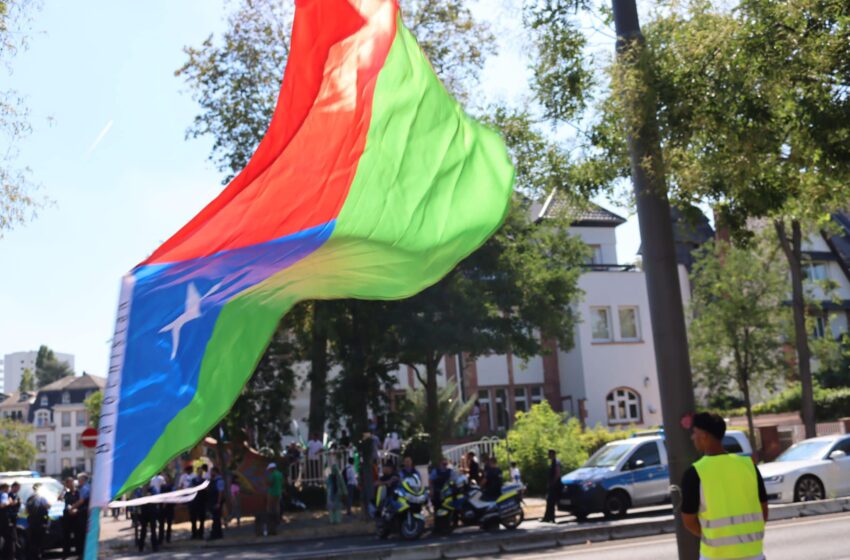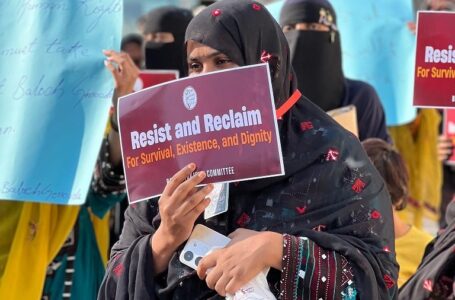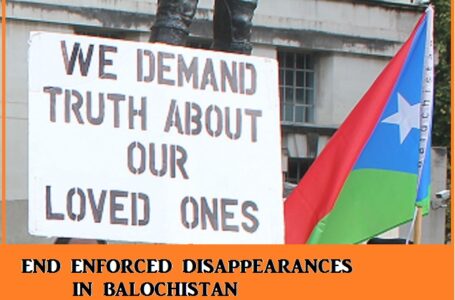The Case for a Free Balochistan: A Catalyst for Regional Stability and Prosperity
The Case for a Free Balochistan: A Catalyst for Regional Stability and Prosperity

By Ajay Ahlawat
The question of Balochistan’s independence has long been a contentious issue, steeped in historical grievances, political complexities, and strategic interests. Balochistan, a resource-rich yet underdeveloped region spanning parts of Pakistan, Iran, and Afghanistan, has been the epicentre of a decades-long insurgency driven by the Baloch people’s demand for self-determination.
A free Balochistan, while a sensitive topic, could serve as a transformative force for the region, fostering stability, economic growth, and cultural preservation. This essay explores how an independent Balochistan could benefit the region through enhanced security, economic opportunities, and the promotion of human rights.
One of the primary benefits of a free Balochistan is the potential for regional stability. The ongoing insurgency in Balochistan, particularly in Pakistan’s Balochistan province, has fuelled violence, human rights abuses, and mistrust between the Baloch population and state authorities. The Pakistani military’s heavy-handed response to Baloch nationalist movements has led to widespread allegations of enforced disappearances, extrajudicial killings, and suppression of dissent.
Similarly, in Iran’s Sistan-Baluchestan province, the Baloch face systemic discrimination and marginalization. These tensions destabilize the region, creating fertile ground for militancy and cross-border conflicts. An independent Balochistan, governed by a representative and inclusive system, could address these grievances, reducing the incentive for armed rebellion. By resolving the root causes of unrest, a free Balochistan could serve as a buffer against extremism, benefiting neighbouring countries like Pakistan, Iran, and Afghanistan, which have long grappled with security challenges.
Economically, a free Balochistan holds immense potential to drive prosperity in the region. Balochistan is endowed with vast natural resources, including natural gas, oil, coal, and minerals such as copper and gold. The region’s strategic location, with access to the Arabian Sea through the port of Gwadar, positions it as a critical hub for trade and energy transit. However, the Baloch people have historically been excluded from the benefits of these resources, with wealth concentrated in the hands of state elites or foreign investors, such as those involved in the China-Pakistan Economic Corridor (CPEC).
An independent Balochistan could prioritize equitable resource distribution, ensuring that the local population benefits from its wealth. By fostering transparent governance and sustainable development, a free Balochistan could attract foreign investment, create jobs, and stimulate economic growth. This economic empowerment would have a ripple effect, promoting trade and cooperation with neighbouring countries and reducing poverty-driven instability in the region.
Furthermore, a free Balochistan would champion cultural preservation and human rights, addressing longstanding injustices faced by the Baloch people. The Baloch have a distinct cultural identity, language, and history, which have been suppressed under centralized state policies in both Pakistan and Iran. Forced assimilation, restrictions on Balochi language education, and economic marginalization have eroded the community’s sense of identity. An independent Balochistan would provide the Baloch people with the autonomy to preserve their heritage, promote their language, and govern themselves in alignment with their values. This cultural renaissance could inspire other marginalized groups in the region to seek peaceful resolutions to their grievances, fostering a broader culture of tolerance and coexistence. Additionally, by prioritizing human rights, a free Balochistan could set a regional precedent for democratic governance, countering authoritarian tendencies in neighbouring states.
Critics may argue that Balochistan’s independence could destabilize the region by encouraging separatist movements elsewhere or disrupting existing geopolitical alliances. However, these concerns overlook the potential for a negotiated and peaceful transition, supported by international mediation. A free Balochistan, far from being a source of chaos, could serve as a model for resolving ethnic and regional conflicts through dialogue and self-determination.
In conclusion, a free Balochistan offers a pathway to regional stability, economic prosperity, and cultural revitalization. By addressing the root causes of conflict, harnessing its economic potential, and promoting human rights, an independent Balochistan could transform the region for the better. While challenges remain, the vision of a free Balochistan holds the promise of a more just and prosperous future for the Baloch people and their neighbours.
Disclaimer: The views and opinions expressed in this article are solely those of the author and do not necessarily reflect the official policy or position of Baloch Warna News. The publication provides a platform for diverse perspectives.










